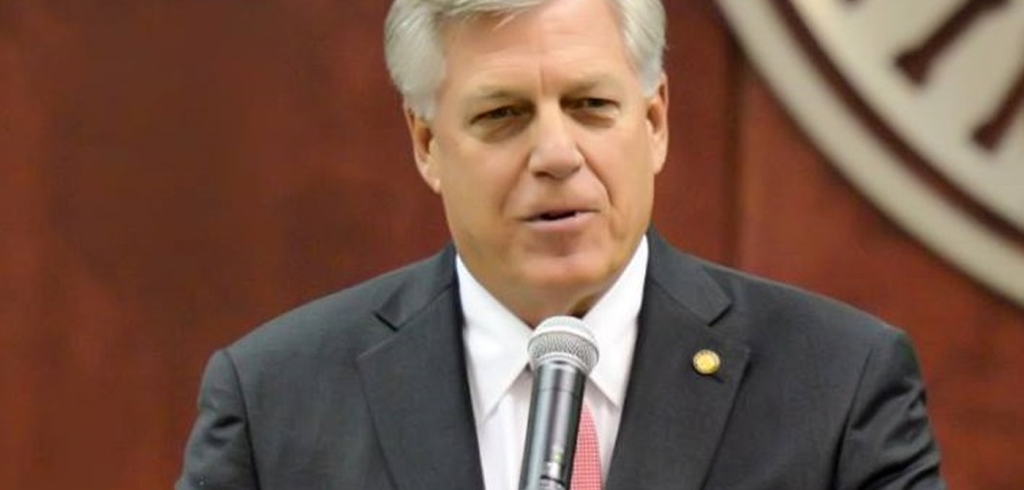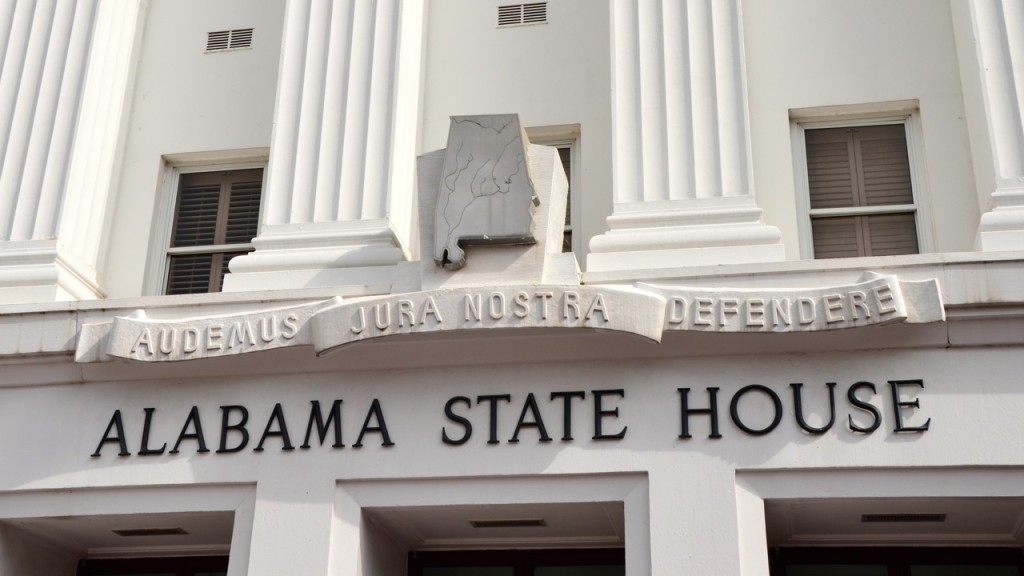Senate committee OKs Fetal Heartbeat Act

The Senate Health and Human Services Committee approved a bill Wednesday that would require physicians to check for a fetal heartbeat before and abortion and prohibit abortions if a heartbeat is detected. SB9 from Sen. Gerald Allen (R-Tuscaloosa) follows a laundry list of controversial bills filed by the Senator and defies previous Supreme Court rulings, which overturned similar legislation in other states. Allen’s bill makes no exception for cases of rape or incest, only in the instance of mortal threat to the mother. The bill further provides penalties for physicians who defy the law making the offense a Class C felony that carries a fine of $15,000 and up to 10 years in prison. Supporters of the bill alleged that studies have shown fetuses are more developed than previously believed, with one suggesting that fetuses are capable of sustaining memories. Opponents suggested that, because heartbeats are detectable as early as five weeks into a pregnancy, the legislation would prohibit many women from attaining an abortion. Further, opponents questioned the state’s ability to afford the lengthy legal battle that would likely ensue as a result of the bill’s passage. The committee passed the legislation with only Sen. William Beasley (D-Clayton) objecting. A similar bill has been filed in the House of Representatives by Rep. Terri Collins (R-Decatur) The committee also approved a bill from Rep. April Weaver (R-Brierfield) which would out law the already illegal practice of selling fetal tissue and parts. Again, Beasley was the only dissenting voice on the committee. Both bills will now go before the full Senate.
Gerald Allen prefiles 3 controversial, conservative bills

Multiple bills have been pre-filed in the Alabama Senate, but few are likely to raise the ire of state Democrats like those proposed by Sen. Gerald Allen, a Tuscaloosa Republican. The senator has already prefiled three bills before the Legislative session convenes February 2. Among those is the Fetal Heartbeat Act, SB 9, requiring physicians check for a fetal heartbeat before performing an abortion, and makes it a Class C felony to perform an abortion once a heartbeat has been detected. Exceptions to the clause are;: The presence of a “lethal anomaly,” which would result in death within three months of birth or before. The possibility that carrying the unborn child to term would result in the death of the mother or cause “substantial and irreversible impairment of a major bodily function” in the mother. No exceptions are made for cases of rape or incest. Not only will doctors be required to provide “written documentation” of how the heartbeat was monitored, it will require doctors to document in writing the reasons for performing an abortion once a heartbeat is detected. A heartbeat can usually be detected within six to seven weeks of becoming pregnant. Also prefiled is the Alabama Heritage Preservation Act, SB13, which would “prohibit the relocation, removal, alteration, renaming, or other disturbance of certain commemorative statues, monuments, memorials, or plaques which are located on public property.” The bill does call for the exemption of “certain art and artifacts, the Department of Transportation, and local highway departments under certain limited circumstances.” Further, the bill provides “any entity exercising control of public property on which the object of remembrance is located” with the ability to petition the Alabama Legislative Council for a waiver. But, by the bill’s design, acquiring a waiver would require the following steps: A resolution by the entity expressing its intent to alter the monument; Advertisement of the resolution in a local newspaper for eight consecutive weeks at the entity’s expense; Signage providing text of the resolution at the monuments site for eight weeks; Two hearings conducted by the entity to receive public input; A petition in writing from the controlling entity stating the reason for seeking alteration and a summary of public input; and Certification by the Alabama Historical Commission and Legislative Council that all requirements have been met Any entity which is found in violation of this bill would be fined $100,000 to be deposited into the General Fund. Finally, SB14 authorizes “certain persons” to carry a pistol without a license on “property under his or her control, in his or her vehicle, in his or her place of abode, in his or her fixed place of business, and on the property of another or a vehicle owned by another, with consent.” Further, the bill says that “carrying a firearm does not, in and of itself, constitute disorderly conduct.” The bill provides for law enforcement agencies to still be able to lawfully detain or question those thought to be in violation of the law and deny permits to citizens with mental illnesses and makes it illegal for anyone under 18 to possess a pistol on his or her person or in his or her vehicle. Multiple attempts to contact the senator for comment were unsuccessful.
Fetal Heartbeat Bill headed for House floor

Alabama is steps closer today to enacting legislation that would ban abortions where a fetal heartbeat is detected. The House’s Committee on Health gave a favorable report to House Bill 405, sponsored by Rep. Terri Collins. The bill passed out of committee by unanimous voice vote. The Fetal Heartbeat Act says that any Alabama doctor who performs an abortion when a heartbeat has been determined would be guilty of a class C felony. During a public hearing on the proposal last week, Rep. Collins said she introduced the bill because of her years volunteering in women’s health clinics. “More education – realizing that there is a heartbeat – is critical when moms are making these decisions. Protecting life is important.”
This week at the Statehouse: Legislative Days 19-20

The talk of the town this week is expected to be about the gaming proposals Sen. Del Marsh drafted and sent home to members last week and the Poarch Creek Indian Tribe’s counter offer. Then there’s the lawsuit that the State Auditor Jim Zeigler has announced he’ll drop Monday to challenge Attorney General Luther Strange for his decision not to challenge school boards from using tax payer money to lobby for tax increases. Here are some of the proposals expected to move in the statehouse this week: Sen. Cam Ward’s comprehensive prison reform bill Senate Bill 67 could go to the House floor was early as Tuesday, according to reports from AL.Com. On Tuesday in the House Ways and Means Committee there will be four bills up. They include House Bill 572 which would raise the cigarette taxes from $.425 a pack to $.675 a pack, House Bill 267 which would raise the rental car tax from one-half percent to four percent and House Bill 590 which would authorize the state skipping the 2015-2016 longevity pay paid out at the beginning of December for state employees. On Wednesday, an education policy panel will hear comments on House Bill 243 to authorize local boards of education to admit or readmit students up to age 21 into the 12th grade. That same panel is expected to vote on Erin’s Law House Bill 197, a proposal to provide age-appropriate instruction in public schools on recognizing and avoiding child sexual abuse. The health committee is slated to vote on a trio of proposals governing abortion on Wednesday. The committee declined to vote last week following public hearings on the Fetal Heartbeat Act, the Healthcare Rights of Conscience Act, and a proposal to bar clinics within 2,000 feet of a public school. Keep checking ALToday.com for updates. *Article updated to reflect tax bills heard on Tuesday not Wednesday.
No vote on bill to bar abortion clinics near public schools

Lawmakers on Wednesday declined to vote on three controversial proposals on abortion, including a proposal introduced last week to bar abortion clinics within 2,000 feet of a public school. The bill is sponsored by state Rep. Ed Henry and was introduced last week, sparking a heated debate over whether children should be shielded from clashes between pro-life and pro-choice advocates. Bob Beecher, an assistant district attorney from Huntsville spoke to the panel of lawmakers as a concerned parent. “There’s antagonistic behavior between these two groups and it’s never going to end,” he said. “They can have their clinic someplace else, just not right across from children of that age.” Others pointed out the history of violent acts by both sides near abortion clinics. Community member Cindy Adams said, “It’s the government’s job to ensure children’s safety while they attend public schools. […] If abortion providers fear for their safety and the safety of their own children, shouldn’t we be concerned about the safety of children going to school?” Clinic advocates pointed to another potential solution: establishing a “bubble” around abortion clinics to separate the two groups and diminish the possibility of conflict. The House Health Committee had also been slated to vote on the Fetal Heartbeat Act and the Healthcare Rights of Conscience Act.


